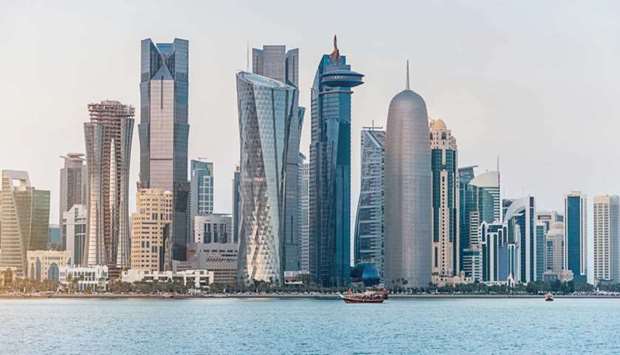Despite low global crude oil prices and a not so conducive economic environment, Qatar’s economy is projected to expand at the fastest pace in the Gulf Cooperation Council region in 2017, said HE the Qatar Central Bank Governor, Sheikh Abdulla bin Saoud al-Thani.
As per the latest International Monetary Fund report, real GDP growth is projected to grow at 3.1% in 2018, up from 2.5% in 2017.
The real GDP growth is expected to pick up on account of recovery in global crude oil prices and their positive spillover effects on both hydrocarbon and non-hydrocarbon GDP, Sheikh Abdulla said in an interview with The Euromoney Qatar Conference.
In the non-hydrocarbon sector, the construction sector is expected to drive the growth, offering large opportunities for investment in projects related to the 2022 FIFA World Cup. Qatar has recently announced a visa-free entry programme for 80 nationalities to stimulate the tourism sector.
"The available data shows inflation to remain benign in 2017 as well as in 2018, while our current account is poised to record considerable surplus. The fiscal consolidation process is expected to bring in some stability to the economy by underpinning oil and non-oil revenues," Sheikh Abdulla said.
The central government deficit is expected to decline in 2018. Moreover, a number of measures have been taken on labour and residency reforms to bring in human capital and increase productivity and timely completion of mega projects, he noted.
The improved outlook for global growth is also an important factor that could generate positive sentiment for domestic investment and GDP growth in 2018, he said.
Sheikh Abdulla said Qatar’s economy has undergone a phenomenal transformation over the past two decades. Huge investment in the hydrocarbon sector helped to position Qatar as the world’s leading producer and exporter of LNG.
The economic diversification envisaged by the Qatar National Vision 2030 and the National Development Strategies helped the country to strengthen its potential in the non-hydrocarbon sector.
Infrastructure development, tourism and policy support aimed at advancing the knowledge-based economy and financial sector provides a wide range of opportunities for partners and international institutions and companies to work together for development and employment generation in Qatar. Opportunities have also opened for wholesale trade, the SME sector and other entrepreneurs, Sheikh Abdulla said.
“I would like to mention that the recent developments in infrastructure, such as the opening of Hamad Port, the network of express highways, logistics centres and special economic zones, will all boost the maritime trade and other medium- to long-term investments,” Sheikh Abdulla said. “I am sure that a strong macroeconomic policy framework, buttressed by the persistent efforts of the authorities, will ensure Qatar continues as a prominent investment destination going forward.”

